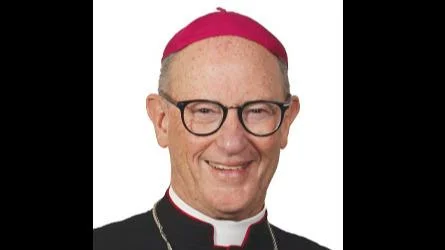
Rev. James D. Conley, D.D., S.T.L. | Diocese of Lincoln website
When engaging with Scripture, some Saints have advised focusing on particular Gospel figures to gain a more personal connection with the teachings. One figure, Barabbas, currently draws attention during a Good Friday homily presented by Fr. Matthew Rolling.
Scripture identifies Barabbas as both a revolutionary and a murderer. This brief description reveals much about his life and his likely disregard for laws, propelling him toward great wrongdoings. An author referenced by Fr. Rolling describes Barabbas as someone adept at committing wrongs, highlighting a selfish and chaotic demeanor. During a significant trial, Barabbas and Christ stood together, both awaiting their fate. Despite likely having known little of Christ’s teachings or miracles, Barabbas found himself amid the spectacle surrounding the preacher’s trial.
Barabbas, familiar with the judicial system, would recognize the dubious nature of the proceedings against Christ—relying on peer pressure rather than evidence. A reasonable person might discern Christ’s innocence, yet He faced being scourged. Ultimately, Barabbas walked away free, barely escaping death. Fr. Rolling says that in sharing a moment with Christ, Barabbas might have felt compassion, offering silent recognition to the beaten man beside him.
Reflecting on Barabbas’ experience, Fr. Rolling reaches the conclusion: “I AM BARABBAS!” Equating his sins to those of Barabbas, he acknowledges his personal failings as betrayal against divine teachings. Despite having knowledge of Christ’s life and resurrection, Fr. Rolling sometimes feels as if he evades punishment unjustly, a sentiment mirrored in the life of Barabbas.
Confronted by the gaze of Christ, Fr. Rolling discerns an unexpected lack of reproach. Fr. Rolling compares it to Christ’s previous encounters with figures like the rich young man, the woman at the well, and Peter after his denials—a look of deep love and understanding.
This gaze resonates with Christ’s words: “No one takes [my life] from me, but I lay it down on my own.” and “No one has greater love than this, to lay down one’s life for one’s friends.” Fr. Rolling interprets this as Christ’s voluntary choice to bear punishment and express love, aiming to foster a genuine relationship.






 Alerts Sign-up
Alerts Sign-up